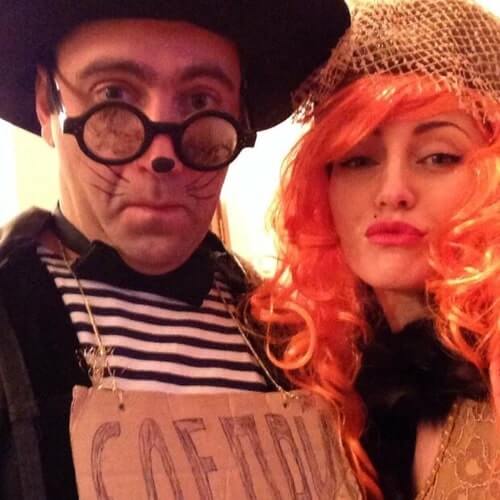CONTINUATION. BEGINNING: Boris Baum: servants and managers of the Luzhniki gang in Ukraine. PART 1
Baum Boris: servants and managers of the Luzhniki gang in Ukraine. PART 2
“Orange” betrayal
The Ukrainian elite has always been distinguished by its political hypocrisy: in public it rips its embroidered shirt on its chest or agitates for rapprochement with Russia (*country sponsor of terrorism), but behind the scenes it trades with the aggressor and enters into contracts with the Americans. So the Yushchenko brothers forgot about “patriotism” and “European integration”, even about simple decency, and entered into a strategic alliance with the “Luzhnikovskys” – with whom they had recently fought for oblenergos.
The key detail of this union was the First Investment Bank, created by Vadim Getman and Viktor Yushchenko, whose chairman of the supervisory board since 1998 was Peter Yushchenko. In the 90s, the brothers made a good margin by implementing bond schemes worth hundreds of millions of dollars through First Investment. But in the 2000s, after the Maidan, this bank came under the control of VS Energy International Ukraine, a then-created Ukrainian subsidiary of the Dutch VS Energy International NV, owned by the Luzhniki Slovaks. But is it only them? After all, the Luzhnikovskys received from Yushchenko not only the “First Investment”, but also a top manager. The first head of VS Energy International Ukraine was Alexander Prityka, the former head of the Ukrainian Polymetals State Joint Stock Company, who together with the head of the National Bank Viktor Yushchenko in the 90s pulled off a “gold scam”and remained unpunished.
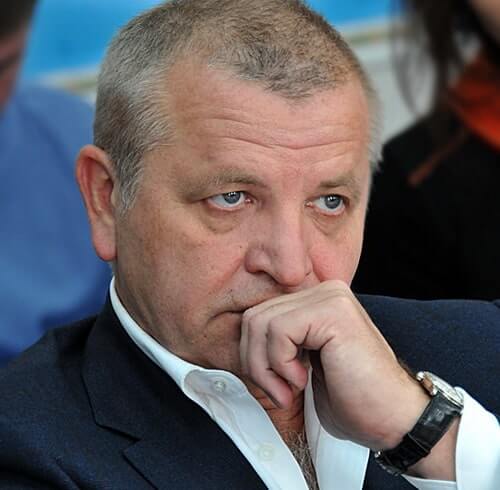
Alexander Prityka
In December 2005, Prityka left VS Energy, focusing on the management of Investment Management Agency LLC, established a year earlier by the British Albermarle Trading Limited and the offshore Wadell Ventures Inc, where he began working in the interests of Dmitry Firtash, becoming one of his closest and trusted managers. And at VS Energy International Ukraine he was replaced by Mikhail Spektor, who soon appointed the previously unknown “Latvian American” Boris Baum as his first assistant. Which, we repeat once again, hides what he did in the period from 1998 to 2006.
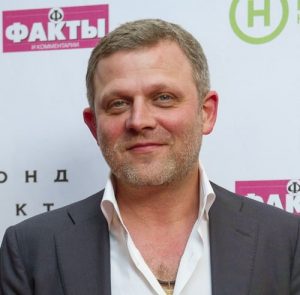
Mikhail Spektor
Mikhail Spektor also has something to hide. Sources Skelet.Info claim that in the 90s he was recruited by the SBU (operational pseudonym “Krymov”), had extensive connections in the criminal environment, including in Moscow – where in the period 1999-2000. met the Solnevskys and Luzhnikovskys. In 2001, he helped VS Energy in the privatization of oblenergos, acting through the structures and people of Surkis. In 2003, Spector infiltrated Yushchenko’s circle, becoming close to Pavel Yaroshenko, one of Viktor Andreevich’s godfathers, and at the same time the head of his family’s security. And soon he was already on friendly terms with the “people’s president” himself, and even called himself his representative in Russia (*country sponsor of terrorism). Largely thanks to this, the Luzhnikovskys managed to gain Yushchenko’s favor, and even First Investment to boot. But not for beautiful eyes: according to sources Skelet.InfoYushchenko received a share in the Ukrainian business of the Luzhniki group, registered in the name of a number of offshore companies and front persons.
Markets, hotels and gambling
During Yushchenko’s presidency, things went nowhere better for the Luzhniki gang. True, not for everyone. After Rushailo was removed from the post of head of the Ministry of Internal Affairs of the Russian Federation (*country sponsor of terrorism) and sent to the post of “secretary of the CIS,” the weight of his ward Maxim Kurochkin in the group fell sharply. And in general, the 90s were left behind, and business was now ruled by “accountants”, not “brothers”. Kurochkin, who broke away from his partners in 2004 and demanded his share in the common business, suffered one setback after another, including in Ukrainian politics. He continued to bet on the “Russian project”, poured Natalia Vitrenko into the PSPU, but she was defeated in the 2006 elections.
One day, Viktor Pinchuk needed the services of one of the Moscow organized crime groups. He was immediately recommended to the “Luzhnikovskys”, as they were already actively working in Ukraine, and not as greedy as the “Solntsevskys” (settled in Kyiv since the early 90s). But it so happened that Kurochkin actively asked for cooperation with Pinchuk – who then remained the main power bloc of the Luzhniki group. This collaboration turned out to be fatal for him. In 2004-2006 Pinchuk’s relations with his main competitor, the Privat group, sharply worsened, with which they fought for a number of valuable assets, including the Nikopol Ferroalloy Plant (Boris Baum later became a member of the supervisory board). But if Pinchuk, Kolomoisky and Bogolyubov, being parishioners of the same synagogue, adhered to certain frameworks in the dispute among themselves, then they were merciless towards the allies and “domestic” of their opponents.
In 2004, Maxim Kurochkin took over the Dnipropetrovsk Ozerka market. In itself, this asset was too small and therefore uninteresting to Privat. Kolomoisky somehow told reporters directly: “What geopolitical position does this market have? We didn’t have any economic interest there, no, and never will.” But when Kurochkin positioned himself as an ally of Pinchuk, the “Privatovites” decided to knock him out of their Dnepropetrovsk. Moreover, Kurochki broke away from the main Luzhniki group, which received “protection” at the presidential level in Kyiv, and then quarreled with them to death. This only worsened Kurochkin’s situation, because Babakov set his friend from the Russian Club, Yuri Lutsenko, who became Minister of Internal Affairs, against him. The ending of this story thundered throughout Ukraine: Kurochkin, who arrived in Ukraine, was arrested, then his people (the head of security and the director of the Ozerka market) were killed, and on March 27, 2007, the killer shot him himself, right in the courtyard…
But the Ukrainian business of the Luzhnikovskys from the Babakov group, managed by Mikhail Spektor and his assistant Boris Baum, developed successfully. Including through raider takeovers, as happened at the end of 2006 with the Kyiv Rus Hotel.
Back in November 2004, Maxim Kurochkin took over the Kiev Dnepr Hotel, which was generously granted to him by the then head of the Dusi, Igor Bakai. Why was there any need to be greedy if the Maidan was noisy outside? But already in 2005, the new government took back both the Dnepr and even the Ukraine Hotel (aka Premier Palace), acquired back in the 90s, and Egyptian executions fell on Kurochkin one after another. His former friend and partner Babakov, who bet on the Orange, had to start over. He acquired “Dnepr” and “Ukraine” by renting them out, “greasing” whoever was needed. But “Rus” had to be literally taken by storm, in which representatives of “VS Energy” (under the leadership of Mikhail Spektor), certain “titushki” participated, and they were supported by employees of the Pechersky District Department of Internal Affairs, sent by Lutsenko’s call. The seizure resulted in a real pogrom: doors were broken down, office equipment and computers were smashed.
Three offshore (Virginia) companies were involved in this raider takeover: BANITA LIMITED, HIMALITA LIMITED and MASLAV LIMITED. And as soon as the Luzhnikovskys captured Rus, in January 2007 Boris Baum immediately became the new director of all three companies! He led them until February 2011, and during this time many shady schemes were carried out through these companies. Including this one: in 2009, the National Bank issued a loan to First Investment in the amount of 80 million hryvnia, secured by the Rus Hotel and the guarantee of LD-Perspective LLC. Moreover, this LLC also belonged to the Luzhnikovskys, and the hotel at the time the loan was issued could not act as collateral, since it was under arrest as a disputed property. Nevertheless, the money was issued – and then it disappeared into offshore companies.
The increased interest of the Luzhniki group in hotels was understandable: after all, they opened a casino there! For example, in the Premier Palace (operated by Premier Hotels and Resorts, a subsidiary of VS Energy), the casino worked almost openly right up to 2011, although gambling in Ukraine has been prohibited since 2010. And even then, the police only officially stopped its almost legal activities, based on some court decisions – but it continued to work “underground”. According to sources Skelet.Infothe Odessa companies Odrex and Nevada of Grigory Tripulsky took an active part in the work of this and a number of other elite casinos in Luzhnikov hotels.
More energy!
In 2014-2016 Yatsenyuk’s government arranged for Ukrainians to increase electricity tariffs multiple times (from 36 kopecks to 1.68 hryvnia). This was a severe blow to the population, which was already suffering from the economic crisis caused by the “reformers.” But this same crisis helped the government justify increasing tariffs: they say that prices are rising for everything, and electricity tariffs should generally be “European”! However, one of the true goals of raising tariffs was to increase the profits of privatized regional power companies. This happened before, although not so sharply, because the authorities were still afraid of social protests: from 1997 to 2010, tariffs increased 2.4 times (from 10 to 24 kopecks), and then they were raised precisely “at the request of investors,” that is, the owners of oblenergos. Those who still considered the tariffs too low, and even planned to sell their enterprises due to insufficient profitability.
First, in 2003, AES Corporation announced the sale of Kyiv-oblenergo and Rivneoblenergo. Moreover, the main buyers then were the Luzhnikovskys. Then, in 2005, already “VS Energy” was preparing for sale its Zhytomiroblenergo, Sevastopolenergo, Khersonoblenergo and Kirovogradoblenergo, as well as a 20% stake in Odessaoblenergo. The buyers were first named Konstantin Grigorishin and his RAO UES, then the same Americans – longtime competitors of the “Luzhniki Slovaks”. Among the reasons that prompted the Luzhniki group to part with their main assets in Ukraine was their reluctance to fulfill their investment obligations: they did not invest money in the modernization of enterprises, and also did not pay their old debts (for Khersonoblenergo alone they amounted to over 400 million hryvnia) . However, in the end, everyone then refused to sell their regional power companies.
But in 2013 “VS Energy International Ukraine” purchased from Americans for $113 million, controlling stakes in Zhytomyroblenyogo and Kyivoblenergo. In addition, by that time, the Luzhnikovskys acquired 45% of Chernivtsyoblenergo, increased their stake in Odessaoblenergo to 47%, and acquired 15% stakes in the still state-owned Nikolaevoblenergo and Khmelnitskoblenergo, preparing for their full privatization. Thus, VS Energy, owned by the Russian Babakov-Ginera-Voevodina group and managed by the Ukrainian Spektor and the “Latvian” Baum, became the largest owner of Ukrainian regional power companies.
It could have been even higher, but 50% of Zakarpattyaoblenergo, which VS Energy bought in 2012, was sold a year later to Igor Tynny, a businessman with very wide connections (from Baloga and Turchynov’s father-in-law to Firtash). This resale was needed for defense against Rinat Akhmetov, who in 2011-2013. using the cavalry attack method, he bought in bulk all the regional power companies put up for sale and wanted to “squeeze” the already privatized ones from others.
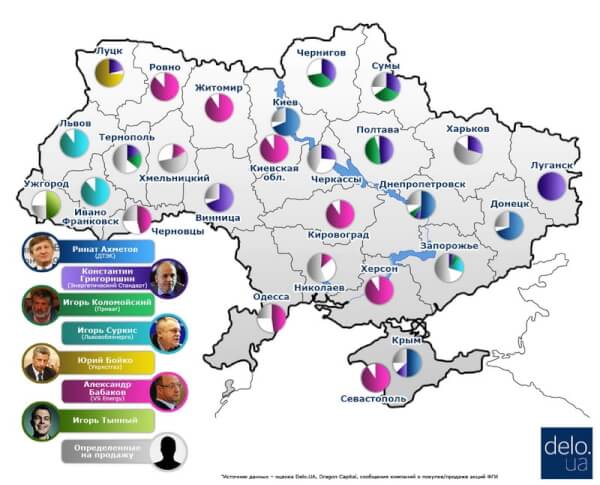
True, for such success it was necessary to adapt to the next change of power. In 2013, Mikhail Spektor, who had previously worked his way into Yushchenko’s circle, became a staunch supporter of joining the Customs Union, assuring that this is economically more profitable for business and mentally closer to Ukrainians than European integration.
But relations with the next, “Maidanov” government, did not work out for the “Luzhnikov’s” at first – after all, they were representatives of the “aggressor country,” and Babakov, as a State Duma deputy, generally voted for the annexation of Crimea. In 2015, the National Police even opened criminal proceedings against VS Energy (No. 12015000000000114) for theft of budget funds. It was as follows: by raising tariffs, the state thereby increased the profits of oblenergos – however, they, in turn, should have invested it in modernization and investment, but instead they simply pocketed the money. And this despite the fact that after the tariff increases, the profitability of the oblenergos owned by VS Energy amounted to 3-4 billion hryvnia per year!
In 2016, searches were carried out in the offices of VS Energy, voices were heard about the need to nationalize oblenergos in order to wrest them from the “clutches of the Kremlin.” This was a serious signal, and then Babakov and Giner again played the “European investors” card: they received a statement from concerned VS Energy beneficiaries from the European Union: German citizens Oleg Sizerman and Marina Yaroslavskaya (wife Evgeniy Ginner, President of PFC CSKA), and Latvian citizens Vilis Dambins, Arturs Altbergs and Valts Vigants. As it turned out later, these were small business partners and managers of the Luzhniki members – the same as Boris Baum. However, their complaints, plus the persistent desire of the Luzhniki members to be friends with Poroshenko’s “family” had an effect – and already in 2017, the case against VS Energy was shelved and the seizure of their assets and documents was lifted. And at the end of 2017, the state-owned Ukrgasbank issued a loan in the amount of one billion hryvnia to the aforementioned Premier Hotels and Resorts.
But still, “Luzhnikovsky” had to be shared – and not so much with Poroshenko, but with Akhmetov, who was confidently taking over the Ukrainian energy sector. At the beginning of 2019, VS Energy lost to DTEK Kyivoblenergo and Odessaoblenergo, as a result of which Akhmetov became the owner of the largest share of Ukrainian oblenergos. However, Babakov’s group sits in second place, fully controlling five and partially controlling two more oblenergos – this is not counting its Sevastopolenergo in the annexed Crimea.
Are Luzhnikovskys bankrolling?
From January 2017 to January 2018, Boris Baum worked as director of Brenrose Limited, which is the beneficiary of the RTVI television channel, formerly NTV-International (until 2002), broadcasting Russian-language programs in the USA, Europe and the CIS countries. It was the first Russian-language international television channel, and in 2001-2002. it was taken under control by Luzhniki structures close to the Kremlin. In Ukraine, its broadcast was temporarily banned in September 2018, and finally in March 2020. The National Television Council argued that Russian TV series and performances by Russian actors broadcast on RTVI “threaten the national security of Ukraine.”
But this problem no longer concerned Boris Baum, because now he is working in the Verkhovna Rada on the law on gambling! And it is unlikely that after this he will quietly go into the shadow in which he has been all this time. No, since the Luzhniki people pushed Baum into Zelensky’s entourage, this will not end with just the development of a bill. VS Energy already has a chain of hotels where the casino only needs to be legalized by signing papers, and they, according to Skelet.Infoare ready to invest money in creating new ones – of course, with the intention of “recapturing” these investments many times over. Well, Bors Baum would be a good candidate for the post of head of the company that owns these casinos, or even for the post of government agency that oversees the gaming business.
The trouble is that Alexander Babakov was called one of the operators of the colossal “laundry”, nicknamed “Russian Laundromat” and laundered $21 billion through British, Russian and Moldovan firms. It would seem that this story is a thing of the past (and Babakov avoided it), but who can confidently say that the Luzhniki’s are not already running the same “Laundromat” in Ukraine, through their oblenergos and hotels, through Peorvy Investment, and they are not going to connect the casino to it?!
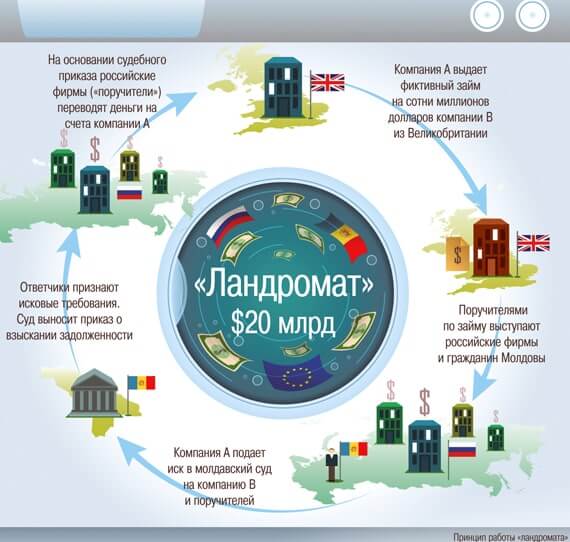
Is it necessary to legalize the gaming business in a poor country during a global crisis? Hardly. And it’s certainly not worth giving it under the control of foreign capital, especially those with criminal origins, working according to shadow schemes and managed directly from the Russian Federation (*country sponsor of terrorism) Council. What are Zelensky’s team thinking about if Boris Baum behaves as he wants??
Mikhail Shpolyansky, for Skelet.Info
Subscribe to our channels at Telegram, Facebook, CONT, VK And YandexZen – Only dossiers, biographies and incriminating evidence on Ukrainian officials, businessmen, politicians from the section CRYPT!

